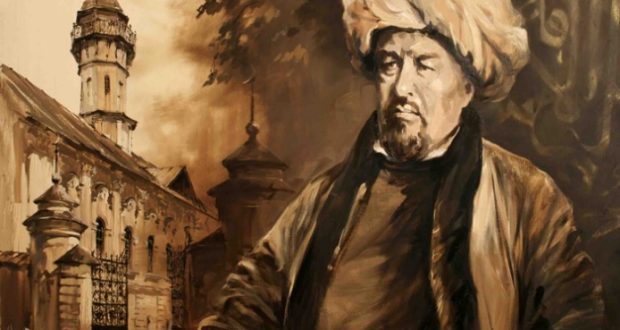Shigabutdin Mardzhani is the creator of a nationwide history
September 14, 2018
Shigabutdin Mardjani – the Russian theologian, educator, teacher, historian – occupies a special place in the history of the Tatar people as a bright, distinct personality. He had the most significant influence on the development of the spiritual culture of the Tatar society of the second half of the XIX century.
Mardzhani – the head of a large intelligent family, an outstanding historian, imam, scientist – encyclopedist, philosopher.
Today Mardjani, in whose statements and works the sense of national dignity sounds, can show us an example of love of history, an example of openness and the desire for knowledge, to the dialogue of cultures. In his travels we see a genuine interest in the world and Russian cultural heritage, and in his positions on art and music – the sources of the stormy dawn of literature, music, theater and painting in the Tatar culture of the early twentieth century. The disciples and followers of Marjani – Galimdzhan Barudi, Hadi Atlasi, Sadri Maksudi, Hasan-Gata Gabiashi, Ziya Kamali, Ismail Gaspraly – highly appreciate Marjani as a scholar, imam. His devotion to truth and course, a call for economic / social activity and learning also impressed us, people of the 21st century, as they were impressed by Mardzhani’s contemporaries.
Mardzhani as an educator and teacher, has developed a reform of confessional education, like his disciple Khusain Feykhan. These ideas were later realized by the spiritual disciples of Mardzhani: G. Barudi, the brothers Bubi, etc. The experience of teaching in the madrassas and the Kazan Tatar school of teachers shows the focus of the teacher and educator on the result.
Mardzhani as the first Tatar historian created a nationwide history, including in it many Turkic peoples, and having considered the centuries-old history of their culture and statehood. The achievement of Mardzhani is the clarification of the ethnogenesis of the Tatars: the readers of his historical works realize the important idea of the scientist about the unity of the nation. Particularly important is that the scientist designated the place of the Tatar people in world history and culture.
He advocated the purity of the language, the preservation of faith and the development of the educational system as important elements in the development of the nation.
Mardzhani as a theologian and religious reformer considered and made judgments on many important issues of Muslim theology. So, Mardzhani’s argument about the right of Muslims to independence of judgments on religious issues is interesting. The theologian leads the civil-law life of Muslims in accordance with the contemporary socio-cultural situation.
Mardzhani as an imam was active, bold, independent. These qualities are noted, speaking of him, G. Tukay, F. Amirkhan, R. Fakhretdin and others. Mardzhani was a vivid example of an honest, fair, independent, inspiring personality. As a leader, he called for the openness of the Tatars in the study of languages, sciences, laws; first of all, by his own example.
Mardzhani as a religious philosopher showed consistency of scientific knowledge and religious outlook. He created the foundations of the Tatar science with his methodology and system of evidence (A.N. Yuzeev).
Summarizing, it is worth noting that, both for the most general, and for the most special issues of Tatar social thought, we can find the judgments by Sh. Mardzhani. In the year of the jubilee of the scientist, the exhibition suggests once again to pay attention to his heritage. Moreover, this legacy is not understood in an appreciable part, and some of the materials have not even been published and translated.
The contribution of Sh. Mardzhani to the formation of a modern Tatar nation deserves attention and the representation of the general public.
Many questions that worried the scientist in the XIX century, respond and in reality, modern society. These parallels, concerning the diversity of cultures and their openness, the sense of national dignity, interest in the historical heritage, freedom of intellectual (including creative) expression, make S.Mardzhani an interesting “interlocutor”.
photo: islam.ru

